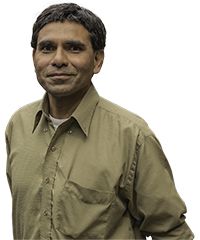Opinion
Mishra’s Mishmash: Why Americans hate, love, and fear Copenhagen
Mrutyuanjai Mishra
This article is more than 7 years old.
Copenhagen is either praised or reprimanded in America for its unique welfare model depending on which school of political thought you adhere to.
It is not just the cycle paths and enviable architecture that fascinates Americans – so does its rock solid social security system, which prevents people from oscillating between a good and bad personal economic situation.
CPH joins the club
In November, the Department of Political Science at the University of Copenhagen awarded Kathleen Thelen, a professor of political science at MIT and president of the American Political Science Association, an honorary doctorate.
She has already been awarded honorary degrees by the Vrije Universiteit of Amsterdam, the London School of Economics, and the European University Institute in Florence.
Copenhagen has not done anything special by adding one more credential to a scholar whose books and expertise are on the origins and evolution of political-economic institutions in rich democracies like USA and EU. So why is her academic work getting so much attention these days?
While summing up her work in her reception speech, she complemented the Danes on their welfare system, but warned that it must be preserved to ensure that workers on the bottom rung of the salary ladder don’t spiral into poverty.
The working dead
Western economies have become ever richer, but the created wealth is increasingly getting unevenly divided. So while the top 10 percent of the population tends to do well in most western countries, at the other end of the spectrum we are seeing a growing number of ‘working poor’ with reduced job security and shorter job contracts, who are getting paid only for the services they provide.
Thelen uses the term ‘gig-economy’ to explain this new phenomenon that has engulfed the job market everywhere. People are hired on a short-term basis, which means they are frequently looking for new jobs. These workers often have periods of unemployment – sometimes in between having three jobs in a single year – and this makes their personal economy precarious.
Not the Chicago way
These members of the ‘precariat’ do not get simple welfare benefits like paid sick leave, or paid leave if their children get sick. They do not get pension benefits and a list of other benefits, such as a paid holiday every year. Simply put, the precariat live a precarious life in which nothing is assured or stable, and at times they are hired for jobs for which the schedule is only given a few days, and sometimes a few hours, in advance.
There are many reasons why US democracy is going through one of its worst crises, and the rise of the precariat class offers one explanation. Copenhagen may not offer you swift career advancement, as do some other capitals in the world, but your chance of ending up as a member of the working poor is fairly low.
So if you have to choose between living in Copenhagen or Chicago, remember it’s not just the skyline that matters. Job security matters too.

About
Mrutyuanjai Mishra
As a regular contributor to the Times of India, the country’s largest newspaper, Mishra is often sought-after by Danish media and academia to provide expertise on Asian-related matters, human rights issues and democratisation. He has spent half his life in India and the other half in Denmark and Sweden.










































